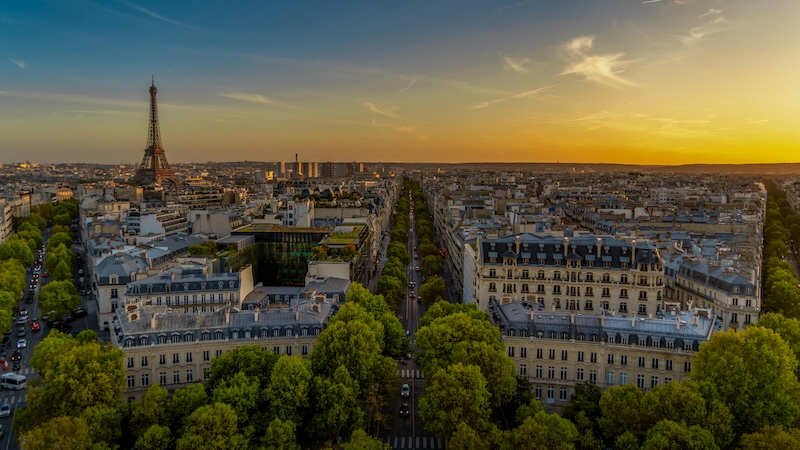Hemingway at Hôtel du Quai Voltaire: Paris was always a good idea
Tour guide

Explore Ernest Hemingway’s brief but meaningful stay at Hôtel du Quai Voltaire—where the spirit of 1920s Paris and literary history lives on.
Who was Ernest Hemingway, and why is his legacy tied to Paris?
Do you know why Ernest Hemingway is so closely associated with Paris? As a central figure of the “Lost Generation,” Hemingway arrived in the city in the 1920s, when it was a hub for writers, artists, and thinkers. His time in Paris shaped his voice, style, and worldview—later immortalized in works like The Sun Also Rises and his memoir A Moveable Feast. For Hemingway, Paris wasn’t just a city—it was a creative awakening.
What brought Hemingway to Hôtel du Quai Voltaire?
Why did Hemingway choose to stay at Hôtel du Quai Voltaire? During his early years in Paris, Hemingway often moved between small hotels and modest apartments on the Left Bank. The Quai Voltaire offered him the perfect balance: affordable elegance, a view over the Seine, and proximity to the city’s literary heart. Though his stay was brief, it placed him within walking distance of the cafés, bookstores, and intellectual haunts that defined his Parisian years.
How did the hotel’s location influence Hemingway’s work?
What does a view of the Seine offer a writer like Hemingway? At Hôtel du Quai Voltaire, the city unfolded just outside the window: barges drifting past, bridges glowing in the evening light, the Louvre across the river. These everyday moments—the details of light, water, and motion—are exactly what Hemingway was known for capturing in his clean, understated prose. The hotel’s surroundings helped him observe and distill life with clarity and purpose.
What made Paris, and this hotel, ideal for a young writer?
Why did so many writers of Hemingway’s generation flock to Paris? It was inexpensive, full of inspiration, and home to a thriving community of expatriates. Hôtel du Quai Voltaire offered Hemingway a quiet, contemplative space to write—just far enough from the bustle of the Latin Quarter, yet close to all the action. With the Seine outside and Shakespeare and Company a short walk away, it was an ideal place to work, think, and create.
Can guests today experience the same Paris Hemingway loved?
Is it still possible to feel that literary energy today? Absolutely. Hôtel du Quai Voltaire has preserved its 19th-century elegance, with rooms overlooking the Seine and a timeless atmosphere of calm. For lovers of literature, it’s more than a place to sleep—it’s a window into a chapter of Parisian literary history. You can read A Moveable Feast from the same side of the river where Hemingway once did, and follow his footsteps across the bridges of the city.
What nearby places are tied to Hemingway’s Paris?
Want to explore more of Hemingway’s Paris? From the hotel, you can walk to Café de Flore, Les Deux Magots, Shakespeare and Company, and the former sites of his apartments on rue du Cardinal Lemoine and rue Descartes. You can also visit the Jardin du Luxembourg, where he often strolled, or the Closerie des Lilas, where he wrote some of his early stories. Hôtel du Quai Voltaire is the perfect base to experience all of these places with ease.
Why do writers and artists still choose Hôtel du Quai Voltaire?
Is this still a creative retreat today? Yes—Hôtel du Quai Voltaire remains a favorite among artists, writers, and cultural travelers. Its blend of quiet elegance, literary history, and central location makes it ideal for anyone seeking a thoughtful, inspiring stay. The same qualities that once drew Hemingway—authenticity, light, and reflection—still define the experience here.
Why should you stay at Hôtel du Quai Voltaire during your visit to Paris?
Planning a meaningful trip to Paris? Choose a hotel that offers both charm and substance. At Hôtel du Quai Voltaire, you’re not just close to the city’s major landmarks—you’re living inside one of its great stories. Whether you’re a Hemingway admirer or simply someone drawn to the artistic soul of Paris, this hotel offers a genuine connection to the past and the inspiration to create your own story.
Conclusion
For Ernest Hemingway, Paris was more than a backdrop—it was a place of transformation. And Hôtel du Quai Voltaire, with its quiet rooms and view of the Seine, was part of that story. Though his stay was short, it captured the spirit of a city that shaped his life and writing. Today, that same spirit lives on. Whether you’re here to write, explore, or simply reflect, the hotel offers a rare chance to experience the Paris that once belonged to Hemingway—and still belongs to all who seek beauty, simplicity, and truth.


